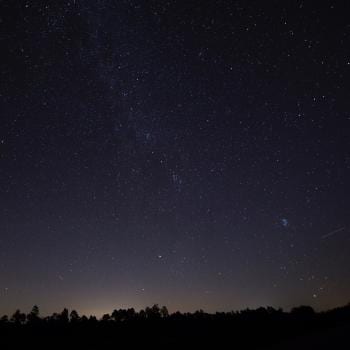The Adventurous Lectionary – Twenty-Second Sunday after Pentecost – November 6, 2022
Haggai 1:15b-2:9
Psalm 145:1-5, 17-21
2 Thessalonians 2:1-5, 13-17
Luke 20:27-38
How do you respond to an irrelevant, gotcha, question? How do you respond to someone who simply wants to make a point, sound and fury signifying nothing except ill will – like many Facebook memes? The sort of questions we hear in news conferences or political debates? Do you avoid the question altogether or transform an irrelevant question into an important truth? A campus chaplain I know noted that when someone asks a controversial theological question – like “are people from other religions saved?” or “is Jesus God?” he responds with “how much time do you have?” We need soul food, cooked slow and carefully, not fast-food theology to satisfy our deepest theological and spiritual hungers. Whether in politics or religion, we need to take time and honor complexity. We need to affirm nuance, and wrestle with questions, and nor look for easy answers.
“Now God is God not of the dead, but of the living; for to God all of them are alive,” so ends a curious exchange between Jesus and the Sadducees. Resurrection, rebirth, and renewal are at the heart of this week’s lectionary readings. There is a future and a hope ahead of us, regardless of how low we have sunk spiritually, personally, and institutionally. Where we see death, God sees the possibility of new life. Dry bones can live. Dead spirits can be born again. Our relationship with God has no expiration date: our life is embedded in God’s life, now and forevermore.
You can’t get a complete systematic theology from Jesus’ exchange with the Sadducees. Rationalistic in spirit, the Sadducees doubted the concept of resurrection, the restoration of life to the whole person on the last day. Trying to discern Jesus’ theology of the afterlife – and even in the first century, Jewish intellectuals were well aware of the Platonic separation of soul and body and the afterlife adventures of the liberated soul – they ask him a trick question about marriage beyond the grave.
Citing Levirate marriage procedures, they wonder how many husbands a widowed woman will have in the afterlife. Jesus, as often is the case, doesn’t give a definitive answer to this gotcha question. He simply places the answer where it belongs, in the context of God’s graceful care for humankind. The dead will live on, for God is the God of the living, and we will live on. The details of the afterlife are apparently unimportant: we don’t need to know the temperature of hell or the furniture of heaven. What matters is God’s fidelity and enduring love. God is alive, God is faithful, and it well with our souls.
This passage may be quite esoteric to many congregants today. Today, very few Christians, even conservative Christians, have a literal doctrine – or even images – of the resurrection. Our post-mortem visions constellate on some form of immortality, either in heaven or a journey from life to life. Progressive Christians joke about bad karma, but seldom speak of hell. A literal restoration of our bodies, apparently on this planet, makes no sense and is seldom the focus of preaching in most mainline, progressive, and evangelical congregations. The idea of the dead emerging from the ground or being put back together supernaturally if the body has decomposed is the stuff of zombie movies, hardly to be taken seriously. Still, many congregants ponder what will happen at the hour of death, even if they don’t share these questions in church.
While we don’t fully know what Jesus had in mind with his response, his words can be an opportunity to reflect on survival after death and on human hope. Most of us fear the fate of the earth and the process of dying far more than we fear death or the afterlife. We are terrified by dementia and Alzheimer’s. Images of the afterlife remain few and far between. Few pastors get much traction fanning the flames of hell, even in evangelical congregations. Yet, if we can consider the possibility of an afterlife, ethics suggest a connection between our actions in this life and our experiences beyond the grave. This need not be couched in terms of hell, but the reality of unresolved issues and personal identity, not to mention redemption of what has died in us relationally and spiritually in this lifetime.
Very few mainline or progressive pastors preach about the afterlife and this allows popular, but often superficial and polarizing, images to dominate their congregants’ visions of life after death. While no pastor can be definitive about the afterlife, he or she can reflect on various possibilities as they relate to this lifetime and assert that neither Jesus nor healthy Christian theology counsels us to disregard our obligations to care for this lifetime and the world in light of the afterlife. We are here and the world – us and our companions – is saved as much here as in an uncharted beyond. (For more on the afterlife, I suggest my short texts, “From Here to Eternity: Preparing for the Next Adventure” and “Angels, Mystics, and Miracles: A Progressive Vision.”)
The passage from Haggai also gives us an image of hope. The decimated nation will return to its former glory; no better than that, injury will be healed, hope restored, forgiveness given, and new beginnings emerge. This will be the work of the faithful and active God visualized by the Psalmist. Thessalonians continues this hopeful vision: the fullness of Christ is on the way, do not be afraid, have faith in God, and all will be well. Our lives are in God’s hands, and so are our deaths, and God is faithful. We may experience cataclysms and threat, but God is at work silently and persistently to defeat the powers of darkness. If we stand firm in our trust in God and live faithfully, the future will be filled with hope and not fear. How might we hear these words in 2022 when democracy is on trail and incivility threatens civil war.
While the author of 2 Thessalonians may have in mind a “second coming,” literal end times prophesies are, up to this moment, ALWAYS wrong and often used to shore up political positions or gin up television revenues. The Left Behind theologies constitute a type of theological bait and switch, privileging the saved – ourselves – and damning those outside our circle. Their concepts of salvation lack gravitas and nuance and are unworthy of the Healer of Nazareth in their scorched earth approach to “non-believers.” They may even contribute to political polarization and the demonization of opponents, characteristic of much Christian behaviors these days.
In progressive and mainline churches, we can translate this passage to address our own faith in a time in which we experience threat to the predictable order of things and in which the very existence of planetary life is at risk through human folly, war making, and greed.
These passages do not counsel us to passivity or to sitting on the sidelines, letting God take care of the future. We are called to live faithfully, to act lovingly, and to care for the earth regardless of what the future brings. Faithfulness is not about a divine rescue operation but about becoming God’s companion through actions to save the world and bring justice and beauty to our companions. Heaven will take care of itself; our task is here on earth, undergirded by the trust that whatever the future brings, we are in God’s hands. God is the God of the living, and God is your God, too.
+++
Bruce Epperly is a pastor, professor, spiritual guide, and author of over seventy books, including THE ELEPHANT IS RUNNING: PROCESS AND OPEN AND RELATIONAL THEOLOGY AND RELIGIOUS PLURALISM; PROPHETIC HEALING: HOWARD THURMAN’S VISION OF CONTEMPLATIVE ACTIVISM; MYSTIC’S IN ACTION: TWELVE SAINTS FOR TODAY; WALKING WITH SAINT FRANCIS: FROM PRIVILEGE TO ACTIVISM; MESSY INCARNATION: MEDITATIONS ON PROCESS CHRISTOLOGY, and FROM COSMOS TO CRADLE: MEDITATIONS ON THE INCARNATION. His latest book is THE PROPHETIC AMOS SPEAKS TO AMERICA. He can be reached for seminars and talks at [email protected].












